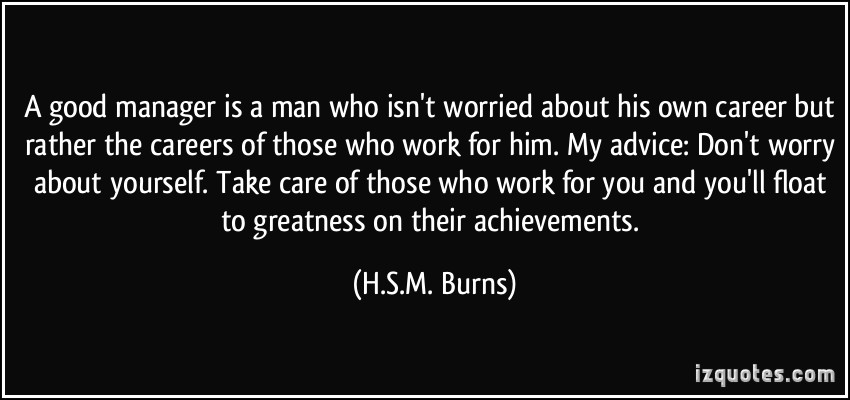“Never tell people how to do things. Tell them what to do and they will surprise you with their ingenuity” – General Patton
“Management” a word which we all BMS students relate to. I liked management subject so I chose BMS course as the right path for mastering this skill. Plus, joining the kickass internship programme at www.bms.co.in was like cherry on the cake. After completing a month at www.bms.co.in we were given an activity named “self-management task” for 10 days. I felt like managing my own self was effortless and thought I had achieved it even before starting. But sigh…everything does not take place as we wish. It was overlapping with the college internals schedule. I was a bit nervous and hesitated which occupied my brain with confusion. That’s when I picked up my management book so as to learn and understand the management concept thoroughly to put it into practical use.
So we start with WHAT IS MANAGEMENT?
People have been using management for many centuries. You cannot think of great buildings and empires, beautiful work of art like Taj Mahal, Pyramids of Eygpt, The great wall of China and many more without effective management. Whenever people work together, there is a need of management in some form or the other.
Defined perfectly by Mary Parker as the “art of getting things done through people.“ But what in case of self-management (the task I had)? To broadly simplify it one of the pioneers of management Henri Fayol defines “to manage is to forecast and to plan, to organize, to command and to control.”
Management is not an easy job. Managers deal with lots and lots of people of different various types, skills, aspirations, emotions etc. Managers have to understand these so as to manage the people under them effectively.
“Leaders are people who do right things. Managers are people who do things right.” -Warren B Bennis
Now that you have understood what is management let’s move on to the Characteristics and Purpose of Management.
- Management is a process that involves various functions like planning the task, organizing the to-do’s and resources, directing people towards it and to control activities if things go out of the way.
- It is result oriented. Management places emphasis on results. Though improvement in activities is also an aim, the main fundamental basis of executing management is for better results.
- Management facilitates innovation in the industry. New ideas, new products, new ways of increasing sales are all good results of effective management.
- It is undisputedly a group activity which brings success to the organization. The efforts of all the members of the organization brings prosperity. A single manager, however, capable, may not be able to attain goals.
- Management is dynamic in nature. The decisions of managers depends upon the current market status, technological changes, changes in government policies etc. Therefore, it is necessary that management is flexible and not rigid. It needs modification depending upon the situation and cannot be same every time.
- Effective management helps the organization reduce absenteeism as well as labour turnover. Labour turnover is when some employees leave the organization and others join in their place. Which is turn increases the costs of training and selecting employees.
- Management is persuasive. It’s a process that touches all walks of life. Right from morning we voluntarily or involuntarily involve ourselves in management process.
- There is a considerable debate as to whether management is an art or science. Practically, it is an art. However, the work of managers depend upon the organized knowledge (science) to achieve targets.
Ok, now you know what is the purpose of management and why is it important for an organization especially. However, Do you know the managerial skills required for it?
Skills of a manager are as important as his existence for the organization. Professor Robert Katz came up with this concept of managerial skills. He placed the main set of skills into three groups:
- Conceptual Skills: These skills help managers to diagnose, visualize and to understand aspects of the various problems in the organization. Katz believed that the top level management requires such kind of skills as they deal with the problems of the organization at a whole as well as plan and organize goals.
- Human Skills:They are interpersonal skills. These skills are necessary for all types as managers interact with various kinds of people. It helps to improve team spirit, motivation and communication between all.
- Technical Skills: These skills helps managers to undertake day-to-day operations of the company. Lower level managers need to master these skills as they are certainly in charge of actual day-to-day work operations.
- Other than these, there are five main skills which overlap the above skills: Design skills, Administrative skills, leadership skills, communicating skills, and decision making-skills.
Did you know?
Henri Fayol’s 14 principles had some setbacks and critical evaluation too.
- The theory of administrative management is management oriented. It does not give much attention to the problems of workers.
- It lacks emphasis on informal groups.
- Some concepts of it are borrowed from military science and then attempted to apply it in business (eg. Fayol emphasizes on “commanding” employees rather than “directing” them)
- The concept does not deal with important dimensions of management such as motivation, communication and leading. It is more like a mechanical approach.
I guess, now you have a pretty clear idea of this explicit-yet-cloudy concept-management. Ever wondered why the modern management concepts are employee friendly too? Why does it emphasize on quality of worker’s life?
The classical school did not place much emphasis on human aspects of the workers. Previously, workers were treated as machines. It could not achieve the desired level of productivity and harmony between management and workers. Thus, the failure of classical approach led to Human Relations movement.
The aim of HR thinkers was to make an attempt to integrate socio-psychology and sociology with management. Therefore, they conducted 7-8 years long research (1924-1932). The research was conducted at Western Electrical Works in USA by National Research Council.
The research was in four parts namely:
1- Illumination Experiments
2- Relay Assembly
3- Mass Interviewing Program
4- Bank Wiring Observation
They tested the productivity of workers by altering various variables like illumination, increase in wages, rest periods, interviews, social pressure etc in those four fold research. The conclusions of research were :
1- The socio-psychological factor and not just monetary rewards and good working conditions are responsible for workers productivity and satisfaction.
2- The informal and interpersonal relations are influential to worker’s behaviour and performance more than the conventional group- formal.
3- If given freedom to participate in decision making in issues affecting their interest, they would perform better.
4- They would work efficiently when they believe management is concerned with their welfare.
5- If treated with respect and dignity, their performance inclines towards improvement.
6- Effective communication between management and them improves relations and overall productivity increases.
Management is a never ending process. Right from start till the end of an organization, management is necessary. Understanding management is quite critical too. I think you might have understood the concepts of management now.
Have a doubt or want to add something more to it? Share it in your comments.
-Vatsal Doshi








Great article, valuable information, keep writing more on these lines 🙂
Thanks a lot Ami,credit goes to Parvathy ma’am for motivation 😀